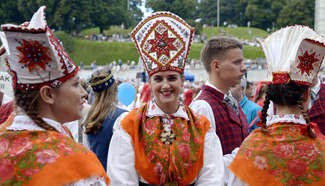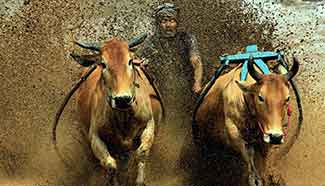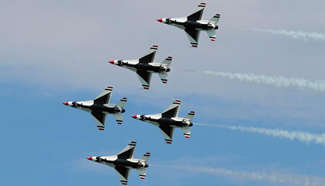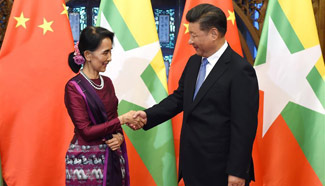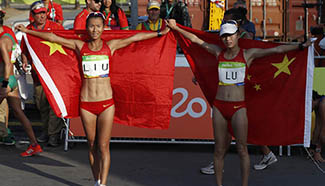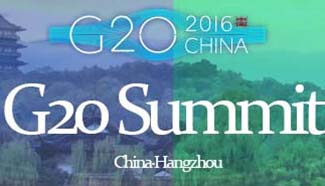BUENOS AIRES, Aug. 20 (Xinhua) -- Organic wines have slowly but steadily taken root in Argentina, where climatic conditions are ideal for this niche market.
Some 14 wineries showcased pesticide-free organic and holistically-produced biodynamic wines this week at the 3rd Fair of Organic Wines, held at Botica del Angel, a home-turned-museum in the Buenos Aires district of Congreso.
Through Saturday, the fair gave health-conscious wine lovers an opportunity to sample and compare the newest organic and biodynamic wines in an art-filled setting.
It is "the only fair in Argentina that is exclusively for organic wines," Pancho Barreiro, who together with Juan Pino organizes the event, told Xinhua.
"There is in addition a stand (about) environmental awareness (and), sustainability," where those who want to "can measure their carbon footprint," said Barreiro.
While Argentina is consolidating its organic wine production, Argentina's consumers of organic wine still represents a small segment, so many of the labels are exclusively made for export.
"Organic wine is very well accepted abroad, but probably not so much here in the country, (so) nearly 90 percent of the production goes for export," said Barreiro.
However, attendance at the fair indicates that may be changing.
The previous edition drew three times more visitors than the first event, and 2016 is expected to draw even more organic wine aficionados, prompting organizers to extend the fair from two to three days.
Organic wines represents only 2 percent of Argentina's wine production, with most of the participating wineries from Mendoza, the country's best-known wine-making region, and one from Catamarca.
But the sector could grow, indicated Barreiro, given that Argentina's "temperature range facilitates the production of organic wine, because (grapevine) pests can't survive. They die in a day, making it easy to naturally produce organic wine."
In the past three years, "there has been an increase in exports, and this year projections are much higher," said Barreiro, with the leading markets being Asia, Europe and the United States.
The wines on show ranged in price from 70 pesos (4.66 U.S. dollars) for an economical wine to 1,000 pesos (66.66 dollars) for a premium bottle.
Among the participating wineries were Ernesto Catena Vineyards, established by the son of Nicolas Catena Zapata, owner of organic label Animal and biodynamic wines Siesta and Tikal; Bodega Domaine Bousquet, a market leader of French origin that exports to some 40 countries; and Bodega Chakana, which switched to organic/biodynamic farming methods in 2012.
Underscoring the sustainable aspect of organic wine production, fair organizers have pledged to donate 10 percent of the earnings from the event to the Green Spaces Foundation (Fundacion Espacios Verdes), which promotes environmental education.
Argentina is home to some 60 producers of certified organic grapes, most in Mendoza.
In 2014, Argentina's organic wine exports grew 59 percent, a figure that held steady in 2015. In 2016, that figure is expected to reach 70 percent.




